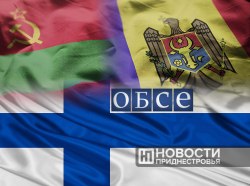The August issue of The Bulletin of the PRB cites the opinions of foreign experts on the situation on the currency market of Pridnestrovie and what should be done in the current situation. Many readers ask us: «What exactly are their findings?» Today we will try to answer this question, summarizing the recommendations given after a study of the Pridnestrovian economy.
The experts' reports do not focus on the devaluation of the Pridnestrovian rouble only, although all specialists are unanimous about it. They believe that we need, first of all, to adjust the official rate by approximately 30% (i.e. up to 14.5 roubles per US dollar), and secondly, this adjustment should be done in one stage, and not gradually. It is the one-stage devaluation that would calm the market and reduce the negative effect of the depreciation of the Pridnestrovian rouble.
Three teams of experts worked in the PMR: representatives of the Russian Academy of National Economy and Public Administration under the President of the Russian Federation (RANEPA), auditors of Russia's limited liability company Financial and Accounting Consultants, as well as a group of the European consulting company Berlin Economics. The guidelines given by experts of the RANEPA and Berlin Economics are of special interest. Therefore, let us consider them.
Breaking free from the monopoly
Researchers from the Russian Academy of National Economy and Public Administration under the President of the Russian Federation point out, on the one hand, a significant downturn in the economy of the PMR, and on the other hand to a decrease in foreign currency revenues and nearly fourfold drop in private remittances (from $82 to 21 million). All this has affected the situation on the currency market.
The economic downturn in Pridnestrovie, according to Russian experts, has been caused by changing conditions in the world economy after 2014, when there was a marked strengthening of the U.S. dollar on currency markets; commodities fell in price (including oil), and the national currencies of many countries were devalued. The national currencies of Pridnestrovie's trading partners underwent 1.5−2 x depreciation, which immediately hit the competitive ability of Pridnestrovian exports.
As a result, the country's GDP decreased by 20% last year, industrial production and fixed asset investments by over 15%, and retail turnover by 26%.
RANEPA experts are giving, in fact, a disappointing diagnosis to the real sector of the Pridnestrovian economy. They note that the republic has a disadvantageous geographical position, taking into account contemporary geopolitical realities. According to experts, the PMR’s economy is monopolised and unbalanced, heavily dependent on international electricity prices (up to 40% of total industrial production and exports account for electric power).
Russian specialists also point out the lack of staff, including management, lack of big business investments, undercapacities in metallurgy and power industry, the need to register exports in Moldova, a low share of small businesses in economy. They separately highlight such a factor as the presence of a large monopolist.
According to RANEPA representatives, the Pridnestrovian rouble's exchange rate is significantly overvalued. «In 15 years (from 2001 onwards) there has been a significant strengthening of the real effective exchange rate (by approximately 2.5 times). It could not but deteriorate the terms of foreign trade. The reason for this situation is the lack of adaptation of the terms of trade through the change of the exchange rate of the national currency. After the fall of commodity prices and changes in electricity tariffs, the problem has become critical, «they note.
Russian experts stress that if the dependence of the Pridnestrovian economy on foreign trade as well as on the existing large financial-industrial group, is not reduced, the PMR will be constantly balancing on the verge of monetary and fiscal crisis. Russia's assistance «can temporarily reduce the acuteness of the problem without actually solving it», Russian representatives believe.
Their guidelines can be divided into two units — short-term and long-term. The short-term programme is designed for up to six months. In addition to a one-stage devaluation of 30%, the experts believe that the problem of repaying the budget loan to OOO Sheriff should be solved through Russian subsidies. They also believe that the powers of the Pridnestrovian Republican Bank should be expanded to a level sufficient to carry out an independent policy. And one more thing — according to experts, the PMR must carry out a tax reform and adopt measures to address the problem of tax collection, particularly in the sphere of administering the payments of large taxpayers.
The long-term product is far more extensive. The main purpose of Pridnestrovie, Russian representatives think, should be the construction of an innovative economy based not so much on the industrial sector, but on high-tech services. Experts particularly advise that the republic should develop engineering and financial education, support small businesses, including with Russia's assistance (this will reduce monopolization of the economy), create conditions for further development of agriculture and tourism.
Removing restrictions
Now let us turn to the assessments made by Berlin Economics experts, who visited Pridnestrovie both last year and this year. They also employ the notion of «real effective exchange rate of the rouble», noting that since 2014 this rate has risen dramatically by approximately 30%. The result was a decline in the international competitiveness of Pridnestrovian goods, which in turn was one of the reasons that led to a fall in exports and reduced foreign exchange reserves.
To restore international competitiveness, it is necessary to devalue the Pridnestrovian rouble. To what extent? Berlin Economics experts answer this question: real effective improvement in exchange rate has amounted to about 30% since the end of 2013; so the scope of devaluation must be at a comparable level.
They also explain why under the present circumstances a single-step depreciation of the exchange rate is better than gradual. The reason is simple: in order to carry out a gradual adjustment, it is necessary to have sufficient reserves of foreign currency, which the central bank currently does not have.
According to Berlin Economics analysts, from the point of view of economic development the positive effects of the devaluation outweigh the negative ones. The potential negative effects, first of all inflation, should be levelled by a rather tight monetary policy. In addition, there is need for targeted support of the population, say European experts.
«If you summarize the findings, the position of the Pridnestrovian Republican Bank on many of the issues finds confirmation in the experts' reports," writes The Bulletin of the PRB, reiterating that Pridnestrovie's central bank is seriously limited in making operational decisions on the financial market. «This situation does not conform to generally accepted international standards of management in the monetary sphere».
Pavel Uvarov.








